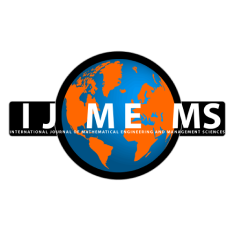Saikumar Puppala
Department of Electrical Engineering, National Institute of Technology, Meghalaya, 793003, Meghalaya, India.
Piyush Pratap Singh
Department of Electrical Engineering, National Institute of Technology, Meghalaya, 793003, Meghalaya, India.
Devendra Potnuru
Department of Electrical Engineering, North Eastern Regional Institute of Science and Technology, Nirjuli (Itanagar), 791109, Arunachal Pradesh, India.
DOI https://doi.org/10.33889/IJMEMS.2025.10.5.065
Abstract
Access to reliable and sustainable energy is crucial for developing remote communities. Many remote communities need help accessing traditional grid infrastructure, resulting in energy deficits and reliance on expensive and harmful fuel sources. This article investigates the feasibility, planning, optimal, technical, and economic analysis of solar, wind, and hydrokinetic energy with battery storage-based standalone DC microgrids to produce green hydrogen and electricity for remote area applications. The proposed DC microgrid with net-zero emission and using sustainable resources in a remote area (Dayarthi and Rachakilam villages) in Andhra Pradesh, India, considers the DC loads. Optimal, technical, economic, and feasibility analysis has been explored to highlight the significance of the proposed configuration with the hybrid optimization of multiple energy resources (HOMER) simulation and the environment by taking the geographic regions' climatic data. The feasibility analysis considers three scenarios and demonstrates the performance characteristics with attributes such as net present cost (NPC), levelized cost of electricity (LCOE), levelized cost of hydrogen (LCOH), and capacity shortage factor (CSF). The feasibility analysis illustrates an efficient and cost-effective system configuration compared to the other integrated DC microgrid scenarios for generating green hydrogen and electricity for remote area applications. Also, the research explores sustainable energy access and proposes resilient and eco-friendly energy solutions for remote areas.
Keywords- Green hydrogen generation, Renewable energy resources, DC microgrid, Techno-economic analysis, Remote area applications.
Citation
Puppala, S., Singh, P. P. & Potnuru, D. (2025). A Techno-Economic Analysis of Solar/Wind/Hydrokinetic Turbine-Based Green Hydrogen and Electricity-Generated Standalone DC Microgrid for Remote Area Applications. International Journal of Mathematical, Engineering and Management Sciences, 10(5), 1365-1396. https://doi.org/10.33889/IJMEMS.2025.10.5.065.



